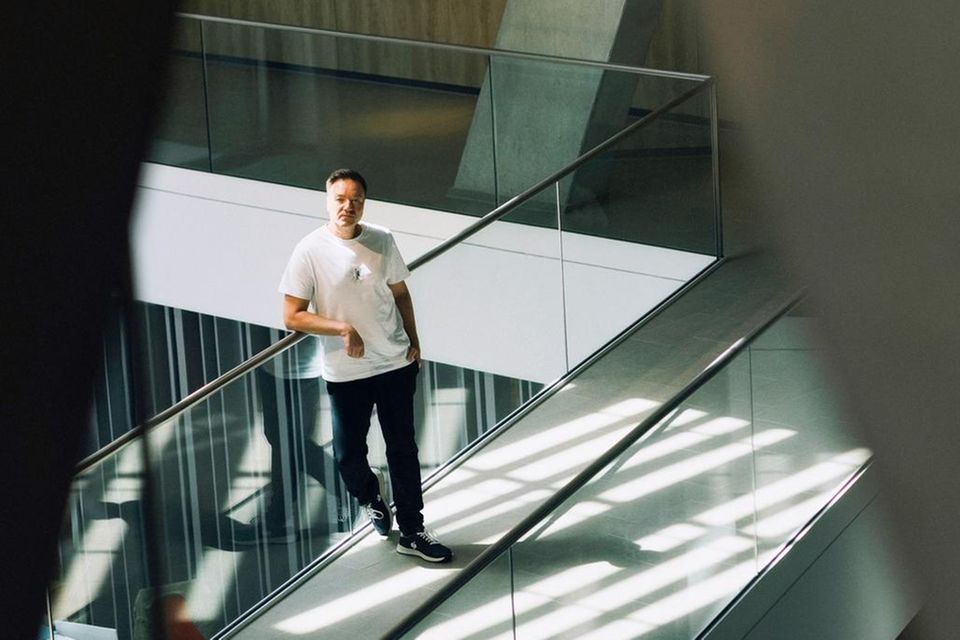Family business: Hima: In times of crisis, the security business is booming

Uncertainty is actually poison for business, but security specialist Hima is profiting from the many crises. Steffen Philipp, Managing Partner, and CEO Jörg de la Motte talk about innovation, doing business in China, and the perceived loss of power.
The systems of automation specialist Hima are designed to prevent the worst: They balance steam crackers in chemical plants, ensure that the doors on London's famous tube open on the right side, and protect power grids from hackers. The Hima Group is now headquartered in Brühl near Mannheim and has over 50 locations worldwide. The company employs 1,100 people and generated revenues of almost €190 million in 2024.
Capital: Mr. de la Motte, Hima has been in the security business for over a hundred years. How is this business changing due to the multiple crises of recent years? JÖRG DE LA MOTTE: Public awareness of the importance of critical infrastructure has increased significantly. Today, Hima's work is understood differently in terms of its relevance. This began with the coronavirus pandemic and is now continuing, for example, with cybersecurity, protection against attacks by humans or perhaps even government organizations.
They operate in extremely sensitive areas, controlling machines and shutting them down in emergencies, including in factories in China. How does a German medium-sized company build trust in this situation? STEFFEN PHILIPP: As a shareholder, I tried to get started very early in the markets that I considered relevant. It's been 25 years since I first visited China. It wasn't that difficult for us to start there because our customers were looking for opportunities to set up production in China. In that respect, we entered China rather organically and started very small. It was a long process. It only really came to fruition much later, in the 2020s, shortly before the crisis.
JÖRG DE LA MOTTE: China is very strongly pushing ahead with its own technical standards. Therefore, we must develop the ability to design, develop, deliver, and commission systems according to these Chinese specifications. When we entered China, the image of German technology and the support from customers who already had good references in Europe certainly helped us.
How will Donald Trump's second presidency affect your US business? JÖRG DE LA MOTTE: Globally, we're feeling the uncertainty. Continued uncertainty is obviously bad for investments, and anything that's bad for investments is bad for technology suppliers.
So tariffs aren't a big issue for you? JÖRG DE LA MOTTE: We provide customers with complete solutions and therefore always have a high share of value creation in the country. It's a fairly robust model with engineering and service offerings, which we occasionally supplement with targeted experts. This allows us to ensure a good local share in the projects.

Mr. Philipp, after a trip to the USA, you initiated various projects at Hima, such as an innovation lab. What's that all about? I had the opportunity to travel to America in 2016 and spend two or three days observing Silicon Valley. It was a profound experience for me in many ways. It was interesting to see how to maintain an attractive employer. We very quickly implemented an idea for transforming a cafeteria into a meeting place and also reimagined what our offices look like. The innovation lab, however, came from a different motivation.
From which? STEFFEN PHILIPP: A customer told me that Hima wasn't innovative at all. That hit me hard. Because as a family business owner, I have the dynastic mentality, and if we aren't innovative, we can't survive. At the time, I thought about how we could create a structure that would allow us to present the innovative idea as innovation and show it to our customers. The idea was to create a place where we could begin to develop ideas outside of Hima. It's always bad when you sit in your own company and start thinking about something. You won't get very far that way. That's why our Innovation Lab isn't in Brühl, but in Mannheim.

>> The Week – Newsletter <<
The most important topic of the week in business, finance, and politics – concisely categorized by Capital editor-in-chief Timo Pache. Every Friday, free of charge, and with plenty of reading tips for the best Capital stories of the week.
How did it feel for you as a family business owner to hand Hima over to an external CEO? STEFFEN PHILIPP: The change in company size means that at some point you have to consider: Can you take the next steps? For me personally, I answered no. I have the training and experience needed for a company with around 1,000 employees. After that, there are structures and processes that I can no longer support because I simply haven't learned them. The best thing is to surround yourself with people who are better than you are. I'm a very rational person. I have few emotions in these matters. It's my job, and my job is to preserve jobs. There's often talk of a loss of power. That's not my problem. They're not losing power; they just have it elsewhere, namely as shareholders.
Mr. da la Motte, where do you see opportunities – or risks – for Hima in the area of AI? JÖRG DE LA MOTTE: I have a hard time with risks. It's clear that we can't implement hallucinating AI in our security systems. Otherwise, our list of AI projects ranges from development to order acceptance and quotation processing, chatbot functions, and even machine learning algorithms, which we use to advance predictive maintenance. So, I primarily see the opportunities.
capital.de




